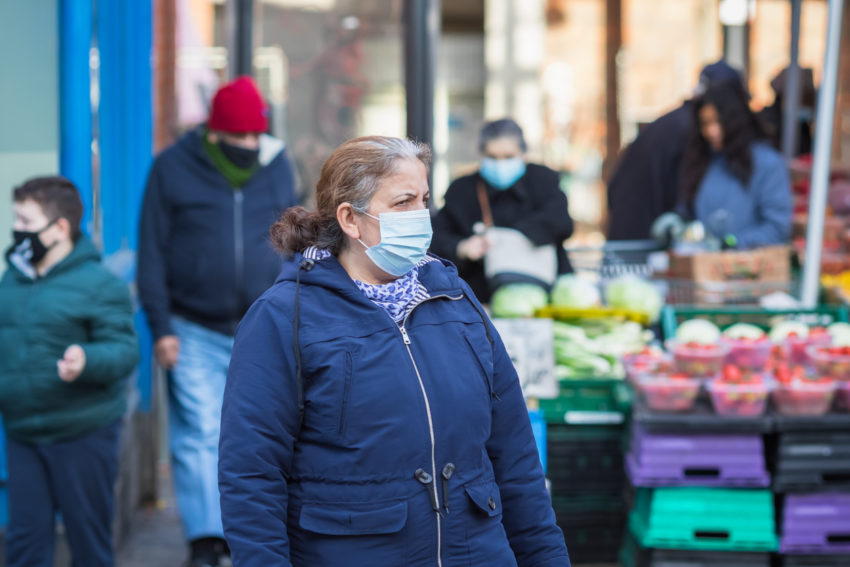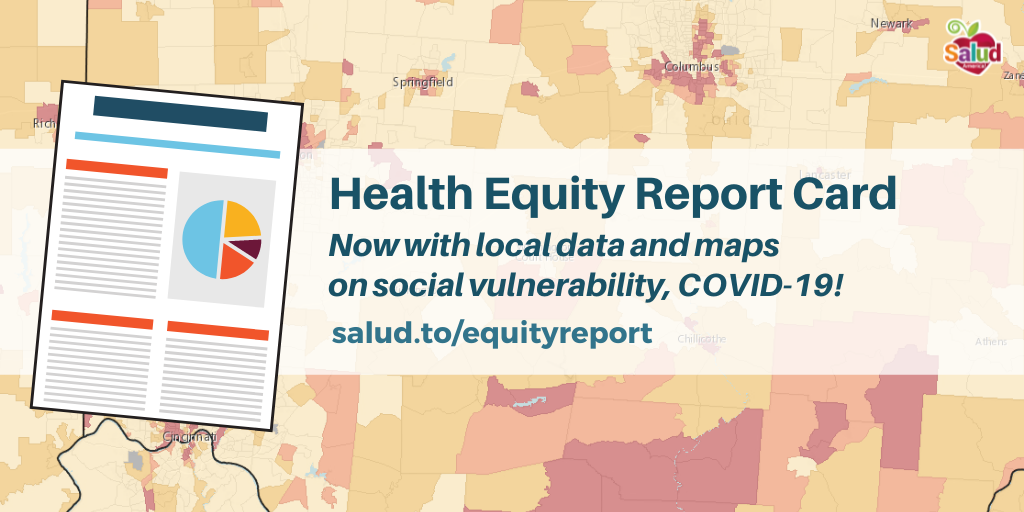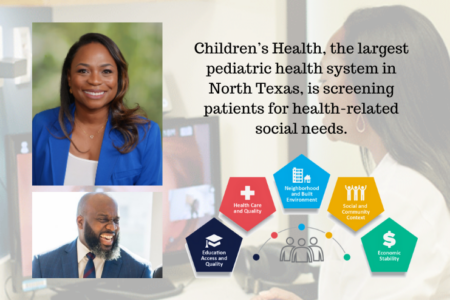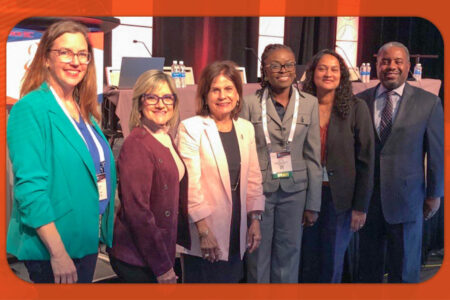
Share On Social!
We have updated our Health Equity Report Card to include place-based information on your county’s Social Vulnerability Index Score and COVID-19 cases, deaths, and hospitalizations.
The Salud America! Health Equity Report Card, first launched in 2017, auto-generates Latino-focused and local data with interactive maps and comparative gauges, which can help you visualize and explore inequities in housing, transit, poverty, health care, food, and education.
You will see how your county stacks up in these health equity issues — now including social vulnerability and COVID-19 — compared to your state and the nation.
Then you can share the Report Card with your local leaders to advocate for healthy change!
Get your Health Equity Report Card!
Why We Need to Consider Place-Based Inequity During COVID-19
COVID-19 is a natural disaster.
Your community’s ability to prevent human suffering and financial loss in the face of natural and manmade disasters is weakened by numerous place-based factors, such as substandard housing, lack of access to transportation, and poverty.
These factors, and many more, contribute to social vulnerability.
That’s why each Health Equity Report Card includes local data, maps, and gauges on many of these factors:
- Housing: Cost-burdened, substandard, affordability, mortgage lending.
- Schools: Graduation, reading proficiency, Head Start enrollment, etc.
- Transportation: Commute times, car-less households, crash mortality.
- Food: Food deserts, food access, food insecurity, fast food, grocery, SNAP.
- Environment: Population density, tree canopy, air toxin exposure, etc.
- Socioeconomic status: Income, poverty, no high-school diploma, violent crime.
- Health care: Uninsured, access to primary, prenatal, mental health, and dental care.
- Physical and mental health: Diabetes, heart disease, obesity, asthma, cancer, premature death, Alzheimer’s, depression, social-emotional support.
- Comparisons of Latinos to non-Latino Whites: Poverty, obesity, median household income, high-school diplomas, lack of health insurance, teen birth rates, asthma, infant mortality, cancer mortality, and motor vehicle crash deaths.

Now the Salud America! team has refined the Health Equity Report Card with new local measurements for social vulnerability and COVID-19.
- Social Vulnerability Index: 0-1 vulnerability score
- COVID-19: cases, deaths, and vaccinations
Each Health Equity Report Card also contains links to evidence-based research and emerging ways local communities are addressing health inequities to help you build a case toward long-term solutions.
You can email report cards to local decision-makers, add data to your grants and projects, and more.
“You can share an interactive version of your local Health Equity Report Card to make the case to address existing inequities and strengthen your community’s ability to respond to and recover from disasters so everyone has a fair opportunity to live their healthiest lives possible,” said Dr. Amelie G. Ramirez, director of the Salud America! Latino health equity program. The program is funded by the Robert Wood Johnson Foundation and based at the Institute for Health Promotion Research in the Department of Population Health Sciences at UT Health San Antonio.
By The Numbers
23.7
percent
of Latino children are living in poverty



